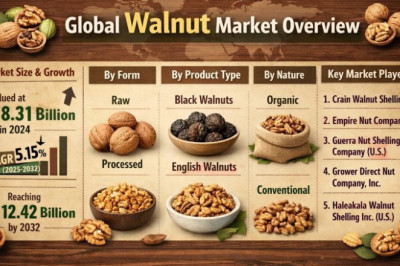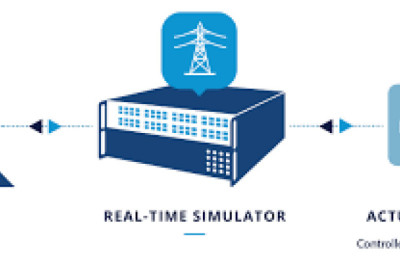views
In today's fast-paced world, technology has significantly transformed the way healthcare services are delivered. The healthcare industry has undergone a major transformation with the introduction of healthcare applications that have made healthcare services more accessible and convenient. Healthcare apps have revolutionized the healthcare industry by making it easier for patients to manage their health and access healthcare services from the comfort of their homes.
Building a healthcare app that meets the needs of patients and healthcare professionals is no easy feat. It requires careful planning, research, and development to create an app that provides the desired functionalities while being easy to use. In this blog, we will discuss the essential features and functionality required to build the perfect healthcare app.
User Interface (UI) Design:
The user interface design of the healthcare app is crucial to its success. A well-designed user interface should be intuitive, easy to navigate, and visually appealing. The app should be designed in such a way that users can easily find what they are looking for and complete tasks without confusion. The user interface should be consistent across all screens to maintain a sense of familiarity for users.
Patient Management System:
A healthcare app should have a patient management system that allows patients to manage their health records, appointments, and medication schedules. The app should provide users with the ability to track their health metrics, such as blood pressure, weight, and blood sugar levels. The app should also allow users to set reminders for medication and appointment schedules.
Telemedicine:
Telemedicine is the use of technology to provide healthcare services remotely. A healthcare app should have telemedicine functionality that allows patients to consult with healthcare professionals remotely. The app should provide video conferencing capabilities that allow patients to have face-to-face consultations with their doctors or healthcare professionals.
Electronic Health Records (EHR):
Electronic health records are digital versions of a patient's medical history. A healthcare app should have an EHR system that allows patients to access their medical records from their smartphones. The app should provide users with the ability to update their medical records and share them with healthcare professionals.
Health Information Exchange (HIE):
Health information exchange is the sharing of medical information between healthcare organizations. A healthcare app should have HIE capabilities that allow patients to share their medical records with other healthcare organizations. The app should also provide users with the ability to receive notifications when their medical records are accessed.
Health Education and Wellness:
A healthcare app should have health education and wellness resources that provide users with information on how to maintain a healthy lifestyle. The app should provide users with tips on nutrition, exercise, and mental health. The app should also have a wellness tracker that allows users to track their progress toward their health goals.
Medication Management:
A healthcare app should have medication management capabilities that allow patients to track their medication schedules and set reminders for medication doses. The app should provide users with the ability to order prescription refills and receive notifications when their medication is ready for pickup.
Integration with Wearable Devices:
Wearable devices are increasingly popular among patients who want to track their health metrics. A healthcare app should have integration capabilities with wearable devices such as smartwatches and fitness trackers. The app should be able to sync data from these devices to provide users with a comprehensive view of their health metrics.
In conclusion, building the perfect healthcare app requires careful planning and consideration of the essential features and functionality required. A well-designed healthcare app should have an intuitive user interface, patient management system, telemedicine capabilities, electronic health records, health information exchange, health education and wellness resources, medication management, and integration with wearable devices. By incorporating these features and functionality, healthcare apps can provide patients with convenient and accessible healthcare services from the comfort of their homes.
If you're in search of a software development company that can help you build the perfect healthcare app, look no further than Zenkoders. With their years of experience in software development, they have the expertise and knowledge to create a healthcare app that meets your needs and exceeds your expectations.
Zenkoders has a team of skilled and experienced developers who can design and develop an app with an intuitive user interface, patient management system, telemedicine capabilities, electronic health records, health information exchange, health education and wellness resources, medication management, and integration with wearable devices. They will work closely with you to understand your requirements and develop a solution that is tailored to your needs.
Their Health Care Development Services process is transparent and collaborative, ensuring that you are involved every step of the way. They use the latest technologies and tools to ensure that the app they develop is of the highest quality and meets your needs. With Zenkoders, you can be confident that your healthcare app is in good hands.
So, if you want to build the perfect healthcare app, choose Zenkoders. They have the expertise, experience, and dedication to deliver a solution that meets your needs and exceeds your expectations. Contact them today to get started on your project.
Source URL: https://zenkoders.com/healthcare-app-development/











